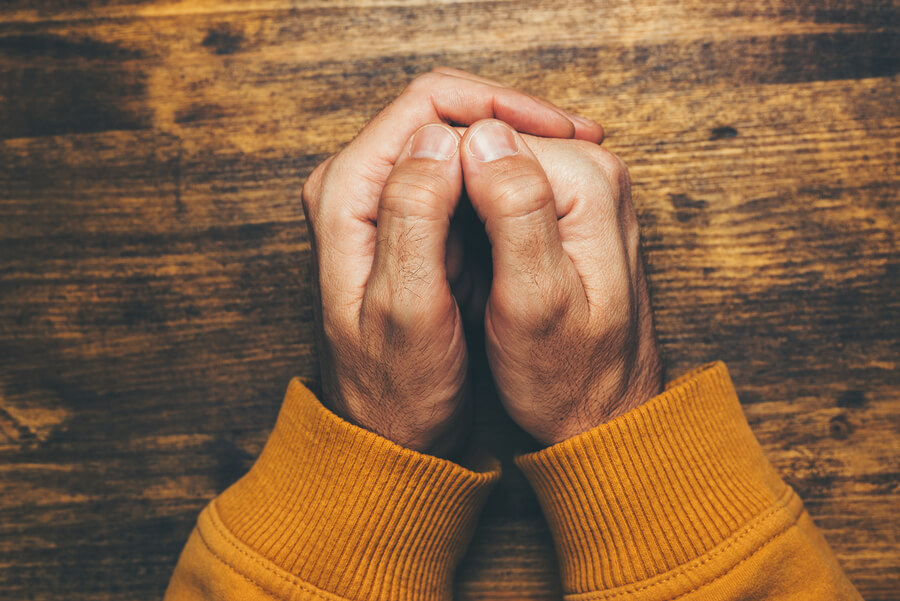Christian and Faith-Based Drug and Alcohol Rehab Centers Near Me
Many people who are dealing with drug or alcohol addiction seek spiritual support while trying to detox and recover from drugs or alcohol. For people who identify as Christians, there are several addiction treatment programs available that place focus on providing spiritual guidance as a cornerstone in their overall program structure.
What Is Christian or Faith-Based Addiction Treatment?
Christian or faith-based addiction treatment is, in short, a type of substance use disorder treatment program that incorporates Christian or faith-based values and teachings into treatment while also providing substantial support through more traditional clinical therapeutic models. Together, these two pillars of treatment can work synergistically and help people maintain their faith—and a crucial connection to a higher power—during more difficult parts of their treatment.
Affordable and Free Faith-Based Rehab Programs
There are many ways to find affordable and free faith-based rehab programs available to you. Depending on your personalized needs, all, or at least part of the cost of rehab may be covered by state-funded programs or insurance. Call American Addiction Centers (AAC) at to verify your insurance or fill in the form below.
Where to Look for Christian or Faith-Based Treatment Centers

Christian addiction treatment centers and recovery programs exist throughout the United States. One way to find Christian rehab centers is by talking to Christian leaders in the community—individuals such as pastors or ministers can help. They may know of resources or have recommendations for support groups that place faith as the cornerstone for addiction recovery.
Some Christian drug addiction treatment centers, although not overtly advertising religious or spiritual affiliations, may also offer spiritual services, such as providing the option to attend meetings with visiting priests or other spiritual leaders. Despite not having a faith-based approach at the core of the treatment curriculum, these treatment centers may offer options for their patients to practice their religion and attend to their spiritual needs.3
Evidence-based therapies used for treating addiction can help someone heal from substance use disorder. Some of these interventions may include:4,5
- Cognitive-behavioral therapy (CBT).
- Contingency management.
- The Matrix Model.
- Family behavioral therapy.
Combining these highly effective treatments with the spiritual support of a Christian rehab program may result in a therapeutic synthesis for a patient, compounding the positive effects of each treatment component.
What Are the Benefits of Christian or Faith-Based Addiction Treatment?
An individual’s belief system is an intrinsic piece of their identity that affects their choices, and ultimately it may affect their success in recovering from a substance use disorder. Faith is a large component of many people’s recovery from addiction to drugs and alcohol. Some benefits of a Christian or faith-based addiction treatment program include:
- A strong spiritual foundation. Addiction takes a heavy toll on every area of a person’s life, including their connection with their higher power. Faith-based addiction treatment programs can help people reconnect with their faith and provide a sense of comfort and support, which they can use as a source of strength during recovery.
- A recovery community. Having a recovery community to lean on is an invaluable tool when recovering from addiction, and having a community rooted in faith and similar principles can provide additional support.
- Reduced shame and guilt. Faith-based addiction treatment programs often emphasize forgiveness and redemption, which can help people struggling with addiction overcome feelings of shame and guilt.
- Positive coping skills. Christian and faith-based programs can provide participants with positive coping skills for dealing with stress and triggers that might lead to relapse.
Take Our Substance Use Self-Assessment
Take our 5-minute substance use self-assessment below if you think you or someone you love might be struggling with substance use. The evaluation consists of 11 yes or no questions that are intended to be used as an informational tool to assess the severity and probability of a substance use disorder. The test is free, confidential, and no personal information is needed to receive the result.
Christian Addiction Recovery Programs at AAC
Facing an addiction is a challenging prospect for any person. To recover, it often requires a robust support network of understanding and compassionate individuals and a team of addiction medicine professionals. Sometimes, it also requires the integration of religious beliefs.
At American Addiction Centers, we focus on providing the best care options to our patients by understanding their physical and mental needs and spiritual beliefs. AAC offers Christian Recovery tracks at some of our facilities.
- At Greenhouse Treatment Center in Texas, programming incorporates spiritual teachings into a greater evidence-based treatment approach.
- At Oxford Treatment Center in Mississippi, individuals who choose to participate in the faith-based program receive Christian-focused counseling, pastor-led, on-campus church services on Sundays, and the ability to rediscover and re-establish their relationship with God.
With a program based on Christian principles and faith-based counseling, patients can combine their religious practices with evidence-based substance use treatment to achieve long-term recovery.
Additionally, all AAC facilities also incorporate 12-Step programs, which involve surrendering to a higher power, among other things.
The curriculum in our Christian-based programs provide high-quality medical care, evidence-based therapeutic interventions, and a faith-based recovery model. The curriculum provides proven addiction treatment that’s consistent with Biblical principles. Topics may include:
- The struggle of sin.
- The grace of God.
- Empowerment of faith.
- The importance of honesty.
- Prayer and meditation.
Topics like these, and others, are explored through activities, counseling, and education at AAC’s Greenhouse and Oxford treatment centers.
What Is Religion-Based Therapy?
A large component of religion-based therapy includes the concepts of reconciliation, forgiveness, grace, and faith. One form of therapy that may appeal to Christians in recovery is religiously-integrated cognitive-behavioral therapy (RCBT). RCBT intertwines the practice of typical cognitive-behavioral therapy (CBT) methods with spiritual approaches to overall healing. Religiously integrated CBT follows the same principles of conventional CBT. However, religiously-integrated CBT also inspires and applies a client’s own religious tradition as a major coping skill for replacing unhealthy thoughts and behaviors. In turn, this may lead to the lessening of depressive symptoms.
When an individual shares their unhealthy, negative, or self-destructive thoughts, therapists may encourage them to lean on their higher power or spiritual beliefs using prayer, intuition, or other personal internal communication pathways.
Researchers have found that religious-based treatment modalities, such as RCBT, may be as effective, if not more effective, than other traditional treatment methods typically used to treat depression in drug rehabilitation centers. By adapting traditional therapies to fit the spiritual needs of patients, many people find sobriety more rewarding and sustainable.
Other forms of Christian-based therapies may encourage scripture-specific contemplation and utilize Biblical verses to relate to patients’ negative thought patterns. For example, certain scriptures in the Bible are often interpreted to discourage “should” statements. “Should” statements, according to many believers, impede self-acceptance and self-love. Other verses in the Bible discourage religious figures from being too hard on themselves, which may help those in addiction treatment forgive themselves for past mistakes or perceived sins.6
Does Insurance Cover Faith-Based Treatment?
Some Christian health insurance programs operate through a method called cost-sharing, where members put contributions in a pool for other members should medical needs arise.7
Christian Healthcare Ministries, for example, is a nonprofit organization that operates through affordable cost-sharing methods. Be aware, however, that plenty of traditional rehabs—that accept traditional health insurance plans—offer opportunities for patients to partake in their spiritual or religious practices. Additionally, many health insurance plans may cover treatment at facilities that offer faith-based programming, such as those offered at American Addiction Centers facilities.
Studies on Faith-Based Rehab Treatment
For many people, the idea of going to treatment for addiction is daunting. Hearing stories about the difficulty of detoxification and withdrawal symptoms, while also facing the intense uncertainty of recovery, can sometimes evoke fear and anxiety.
For these individuals, maintaining a religious practice and choosing a faith-based or spiritual-based treatment program may resonate as appealing and comforting. Similar belief systems may also make it easier for people to bond with others in a new environment, such as an inpatient drug rehab.
- One study found that a significant majority of participants credited spirituality for providing them with an unshakeable feeling of strength. This strength applied to their perceived ability to recover from drugs, as well as their sense of safety and protection during each phase of recovery.1
- Another study, examining the role of spirituality and religion in the cases of several individuals in recovery, found that maintaining a higher power in conjunction with other positive factors, significantly contributed to their overall satisfaction with their lives.2
From a scientific standpoint, maintaining a relationship with God or another higher power can place a powerful buffer between a person and their triggers. In turn, this may influence their quality of life in a considerably positive way. For individuals with a spiritual practice, the commitment to prioritizing spiritual beliefs while working to recover from a substance use disorder may prove advantageous for many people looking to conquer substance use issues.2
Christian and Faith-Based 12-Step Programs
The 12-step Christian and faith-based recovery programs, therapy, and organizations exist for a variety of faiths, including Christianity.
A few 12-Step rehabilitation programs incorporate support groups such as Alcoholics Anonymous (AA) into their patients’ treatment plans. Although AA does not adhere to any one particular faith, it does focus on spirituality as a meaningful force in the recovery of its members, as well as a vital component in a member’s maintenance of sobriety.
AA was originally based on Christian teachings. Over the years, this self-supporting organization continues to help many people face their addictions with the support of a “higher power of [your] understanding.” Since its creation in the 1930s, AA has grown into a worldwide organization, helping people find encouragement and fellowship in the pursuit of a sober life.8
Christian Inpatient Rehab
Christian and faith-based inpatient drug rehabs are designed with a specific population of patients in mind: those suffering from drug or alcohol addiction who would like to keep Christ at the center of their recovery journey.
In inpatient Christian rehab, patients are able to focus wholeheartedly on their recovery efforts and their faith while receiving round-the-clock care for addiction. In inpatient Christian rehabs, patients are likely to find others with similar belief systems and thus build a robust and supportive sober community. Besides spiritual focus, patients may also receive support for physical withdrawal symptoms and co-occurring mental health conditions.
Faith-Based or Christian Outpatient Rehab
Outpatient Christian rehab programs typically intertwine evidence-based treatment modalities with spiritual practices.
Instead of staying in a residential treatment setting, patients may live in sober living or at home while attending an outpatient Christian rehab program. Patients may also choose to attend outpatient Christian treatment for varying lengths of time based on their individual needs.
Finding the Right Christian or Faith-Based Treatment Program
The right addiction treatment program for you should, ideally, thoroughly address your physical, mental, emotional, and spiritual needs.
It is important to keep in mind the level of addiction treatment you or a loved one needs in addition to the faith-based options a facility or organization can provide. Call to learn more about AAC’s Christian treatment programs, understand your options, and verify your insurance. Let us help you reconnect with your faith while finding lasting recovery.
